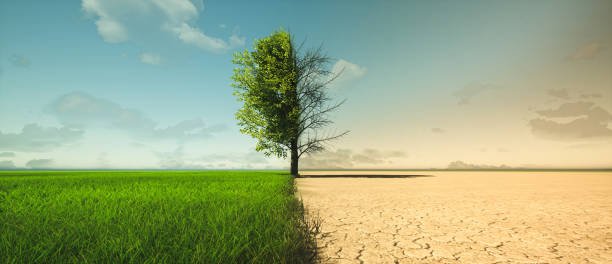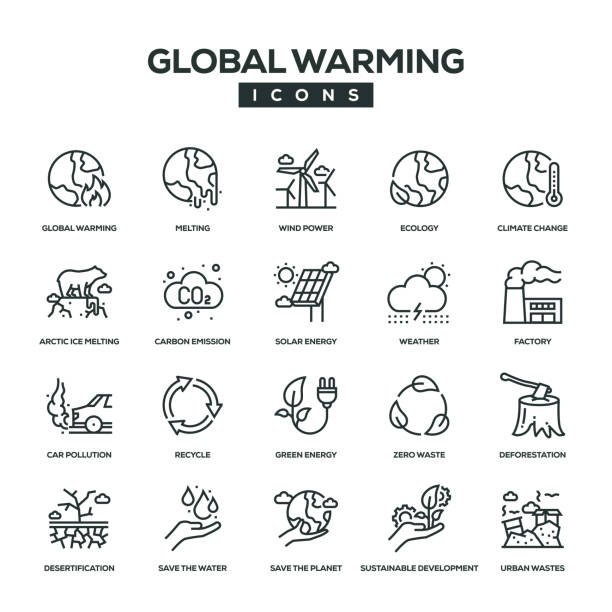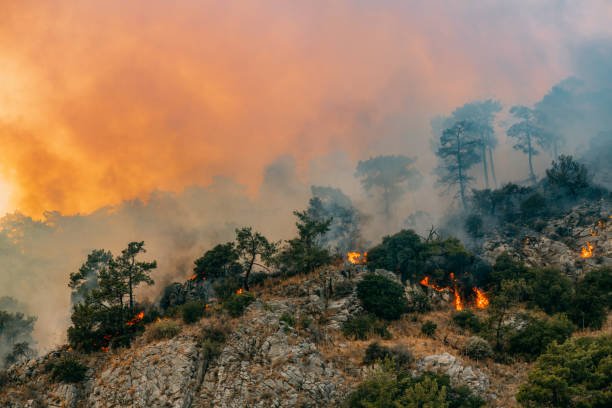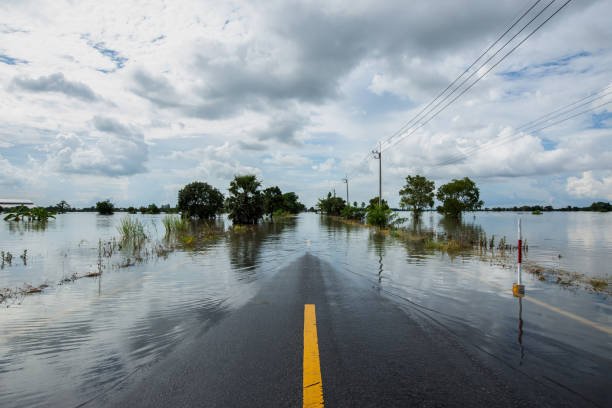According to my research climate change have indirect effects on human health and well-being.
For example, as climate change disrupts food production and water availability, it can lead to increased malnutrition and hunger, particularly in developing countries. It can also lead to economic disruption and displacement, as people are forced to leave their homes due to the impacts of climate change.
These indirect effects can have serious consequences for both human health and social stability. In short, the harmful effects of climate change are far-reaching and interconnected, and they are likely to increase in severity in the coming decades.
Another indirect effect of climate change that is worth mentioning is the potential for conflict. As resources become more scarce and populations are forced to migrate due to the impacts of climate change, there is a risk of increased competition and conflict over these resources.
This can lead to political instability and violence, which can have serious consequences for both human health and safety. It's important to note that the impacts of climate change will not be felt equally by all people.
Those who are already vulnerable, such as the poor, women, and children, are likely to be disproportionately affected.
Climate change has a number of potentially harmful effects on both the environment and human society. Some of the most significant effects include:
- Increased frequency and severity of extreme weather events, such as hurricanes, floods, and droughts
- Shifts in weather patterns, including changes in precipitation and temperature, leading to changes in food production and water availability
- Rising sea levels, which can cause coastal flooding and erosion, as well as damage to marine ecosystems and infrastructure
- Loss of biodiversity, as species struggle to adapt to changing conditions and habitats
- Health effects, including an increase in respiratory and cardiovascular diseases due to changes in air quality.
With my knowledge and understanding there are so many factors that contribute to global warming. The primary driver of climate change is the release of greenhouse gases like carbon dioxide into the atmosphere. These gases act like a blanket around the Earth, trapping heat and causing the planet to warm up.
The main source of these greenhouse gases is the burning of fossil fuels, such as coal, oil, and natural gas. Other factors that contribute to global warming include deforestation, agriculture, and land use change. All of these activities release greenhouse gases into the atmosphere, contributing to the warming of the planet.
The burning of fossil fuels is by far the biggest contributor to global warming. In fact, about 80% of the increase in global temperatures since the industrial revolution is due to the release of carbon dioxide from fossil fuels.
Other factors, such as deforestation and agriculture, contribute a much smaller amount to global warming. However, it's important to consider all of these factors, as they all play a role in the warming of the planet.
Human activity is a major driver of climate change. In addition to the burning of fossil fuels, other human activities that contribute to climate change include urbanization, land use change, and industrial processes. These activities can release greenhouse gases, change the reflectivity of the Earth's surface, and even influence the amount of heat that the Earth's atmosphere can hold. In short, human activity is having a profound impact on the Earth's climate.
According to my observation the impact of climate change on agriculture is significant and complex. Some of the main impacts include:
- Increased frequency of extreme weather events, such as droughts and floods, which can damage crops and reduce yields.
- Changes in rainfall patterns, which can lead to water shortages and changes in the types of crops that can be grown in a given area.
- Shifts in the range of pests and diseases, which can increase crop losses.
- Higher temperatures, which can reduce crop yields and lead to changes in the nutritional value of crops.
All of these factors can have a serious impact on global food security.
Another way to the direct impacts on crops, climate change can also have indirect impacts on agriculture. For example, higher temperatures can increase the demand for water for irrigation, which can lead to competition for water resources. Climate change can also lead to increased levels of ground-level ozone, which can damage crops.
In addition, changes in climate can affect the availability of pollinators, such as bees, which are essential for the production of many crops. The impacts of climate change on agriculture are already being felt around the world, and they are expected to become more severe in the future.
How climate change is impacting agriculture around the world. In India, for example, the increased frequency of heat waves and droughts has led to significant crop losses. In Australia, changes in rainfall patterns have led to increased variability in crop yields, and in Africa.
climate change is contributing to desertification, which is making it difficult to maintain agricultural production. As you can see, the impacts of climate change on agriculture are complex and varied, and they are having a profound impact on the lives of farmers and food security around the world.
From my own perception and experiment there are number of strategies that can be used to reduce the negative impacts of climate change on agriculture. These include:
- Improving the efficiency of water use in agriculture.
- Planting more drought-tolerant crops.
- Developing and deploying new varieties of crops that are better suited to changing climate conditions.
- Promoting the use of sustainable farming practices, such as crop rotation and cover crops.
- Developing and implementing adaptation strategies, such as crop insurance and early warning systems.
- Building the resilience of farmers through education and training.
It's not just farmers who need to take action to protect against the ill effects of climate change. Consumers also have a role to play. For example, choosing to buy locally grown produce can reduce the environmental impact of transporting food.
Eating less meat and more plant-based foods can also help to reduce the amount of greenhouse gases emitted from agriculture. In addition, reducing food waste is another important way to reduce the overall impact of agriculture on the environment.
Ultimately, everyone has a role to play in addressing the challenges of climate change and protecting the future of agriculture.
Consumers can also help to protect against the effects of climate change by supporting sustainable food systems and policies. This can include supporting local and organic farming, advocating for sustainable agriculture practices, and supporting policies that promote sustainable food systems.
It's important to remember that every individual has the power to make a difference, even if it's just through small actions like eating less meat or supporting local farmers. As consumers, we have a responsibility to consider the environmental impact of our food choices and to make choices that will help to protect our planet for future generations.
In conclusion climate change is the long-term alteration of weather patterns and average temperatures around the world due to the increase of greenhouse gases in the atmosphere.
These gases are released through human activities like burning fossil fuels, clearing forests, and raising livestock. The consequences of climate change include rising sea levels, melting glaciers, and more extreme weather events like droughts, floods, and hurricanes.
Climate change is a global problem that requires action from individuals, businesses, and governments to reduce emissions and prepare for the impacts of a changing climate.
Thanks for reading.......




Many thanks to the Steem Entrepreneurs Community users who shared the original posts. We hope your contributions continue to inspire and strengthen the entrepreneurial spirit in our community.
Modaretor Recommendations:
Kind regards,
Steem Entrepreneurs Team
Downvoting a post can decrease pending rewards and make it less visible. Common reasons:
Submit